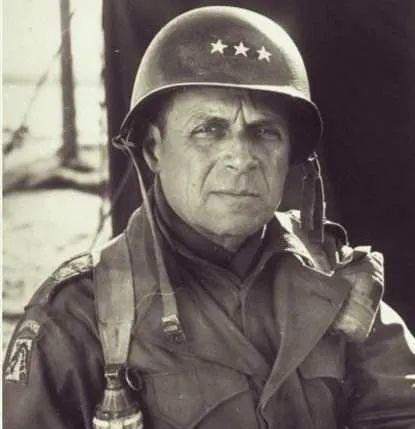During the Korean War in the 1950s, the more famous commanders of the U.S. military were MacArthur, Walker, and Ridgway. Of the three, MacArthur's reputation was undoubtedly the loudest. And it is worth mentioning here that every time the War to Resist US Aggression and Aid Korea is mentioned, some Chinese people praise Ridgway the most. The American admiral did not think that I did not give Chinese money, I wonder why they praised me like this? If there is such a thing, we have to start with the rumored "magnetic tactics".

"Magnetic Tactics"
Many people may not have heard of this tactic. But in fact, the essence of magnetic tactics is to use the mobility that is stronger than the enemy army to firmly control the enemy army in its own hands. And with the help of better strategic depth, it will form a fatal blow to the enemy. In some countries, Ridgway became the inventor of this tactic. When the Volunteers launched a pursuit attack on the "United Nations Army", Ridgway would ask his troops to retreat quickly and calculate the distance required for the Volunteers to pursue.
In this way, when facing the volunteer army, the "United Nations Army" naturally has a certain advantage. The main reason for this tactic is that Ridgway found two weaknesses of the volunteer army when facing the volunteer army, one is that the volunteer army is accustomed to attacking at night, reducing the advantage of the American army; the other is that each attack can only last for about a week, and when the week time passes, the attack will become weak and weak.
Ridgway speculated that the main reason for this situation was that the logistical support of the volunteer army could not keep up. Under such circumstances, Ridgway only needs to "fish" the volunteer soldiers behind him, and he can use the advantages of the air force to launch an interception of logistics and eventually form a counter-encirclement of the pursuing troops. Not to mention that some of the Chinese who proposed this tactic, even if they have heard of this tactic for the first time, from a tactical point of view alone, it is definitely one of the most suitable tactics for the "United Nations Army". But in fact, Ridgway really did not use the so-called "magnetic tactics".
Real history
According to Wang Yang, commander of the first main division of the Volunteer Army, when the enemy was retreating, it would set up defensive points with tank fire and armor, and motorized infantry and artillery would cooperate in coordination. If our army wants to pursue the enemy, it can only advance in the night, but in such a situation, the speed of pursuit will naturally be counted by the enemy.
Judging from the recollections of Master Wang Yang, magnetic tactics seem to exist. But in fact, this has nothing to do with Ridgway at all. Ridgway took up his post as commander of the United Nations Army on December 13, 1950, when Walker died in a car accident, before he was ordered to rush to North Korea. The memories recorded by Master Wang Yang were around November 1950. Therefore, from the perspective of time, It is clear that Ridgway was not the inventor of magnetic tactics.
Historical magnetic tactics
In fact, when we take out the form of representation, a careful analysis of the nature of magnetic tactics will reveal. This tactic has been around on the Battlefield in China for thousands of years. For example, the nomadic peoples who wreaked havoc on the northern border of the Central Plains have been using magnetic tactics to contain the armies of the Central Plains regime. Especially during the Han Dynasty, the Xiongnu were familiar with the use of magnetic tactics. The "magnetic tactics" that appeared on the Korean battlefield were actually just a change of form. It can be seen that the touting related to rumors is simply something that does not exist.
In fact, when looking at history or looking at any war, we can affirm and learn from the enemy's combat thinking from the tactical point of view, and strive to make continuous progress. But if false facts are fabricated just to attract attention, it is completely unnecessary. It's no wonder why Ridgway himself wonders why there is inexplicably so much more praise.